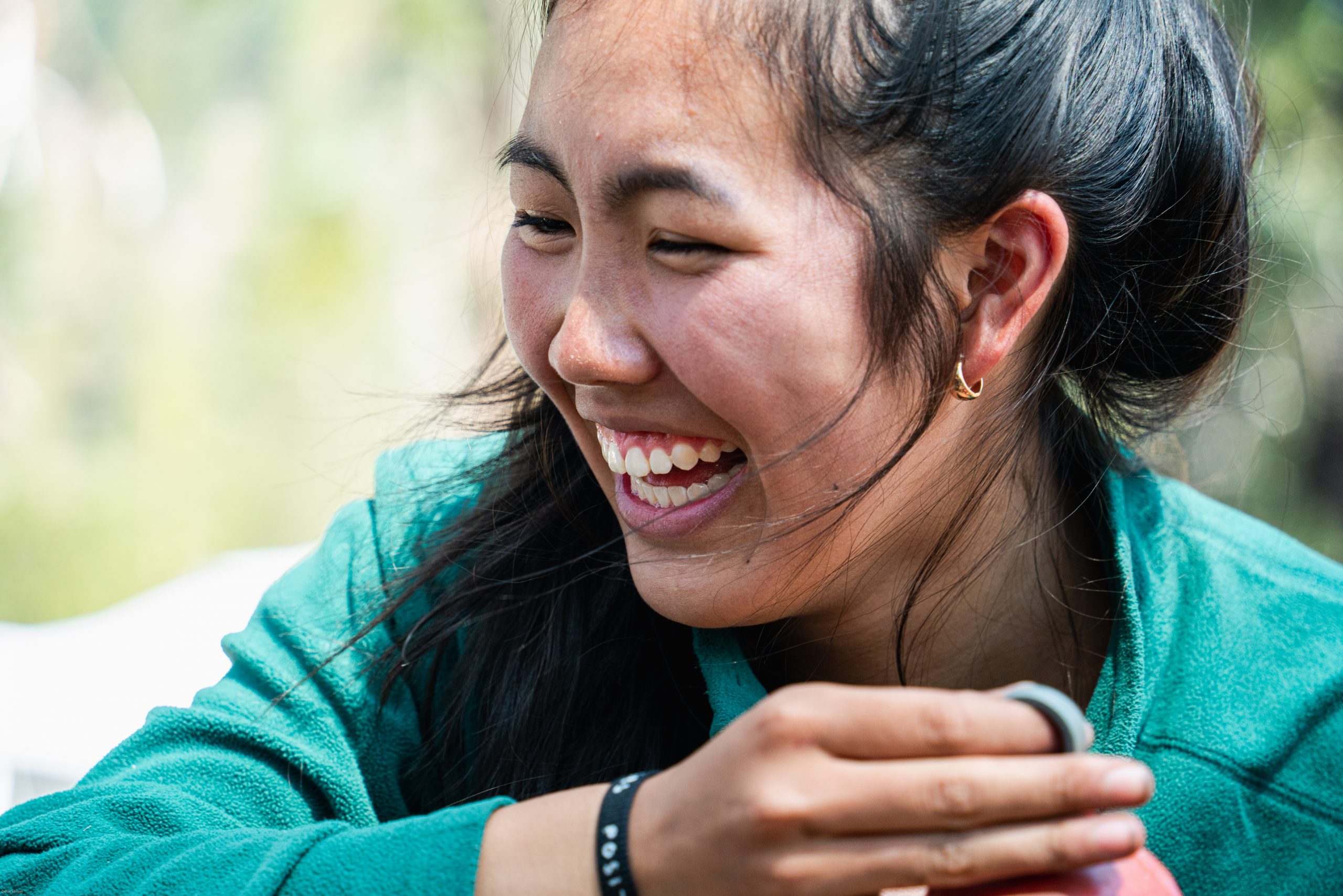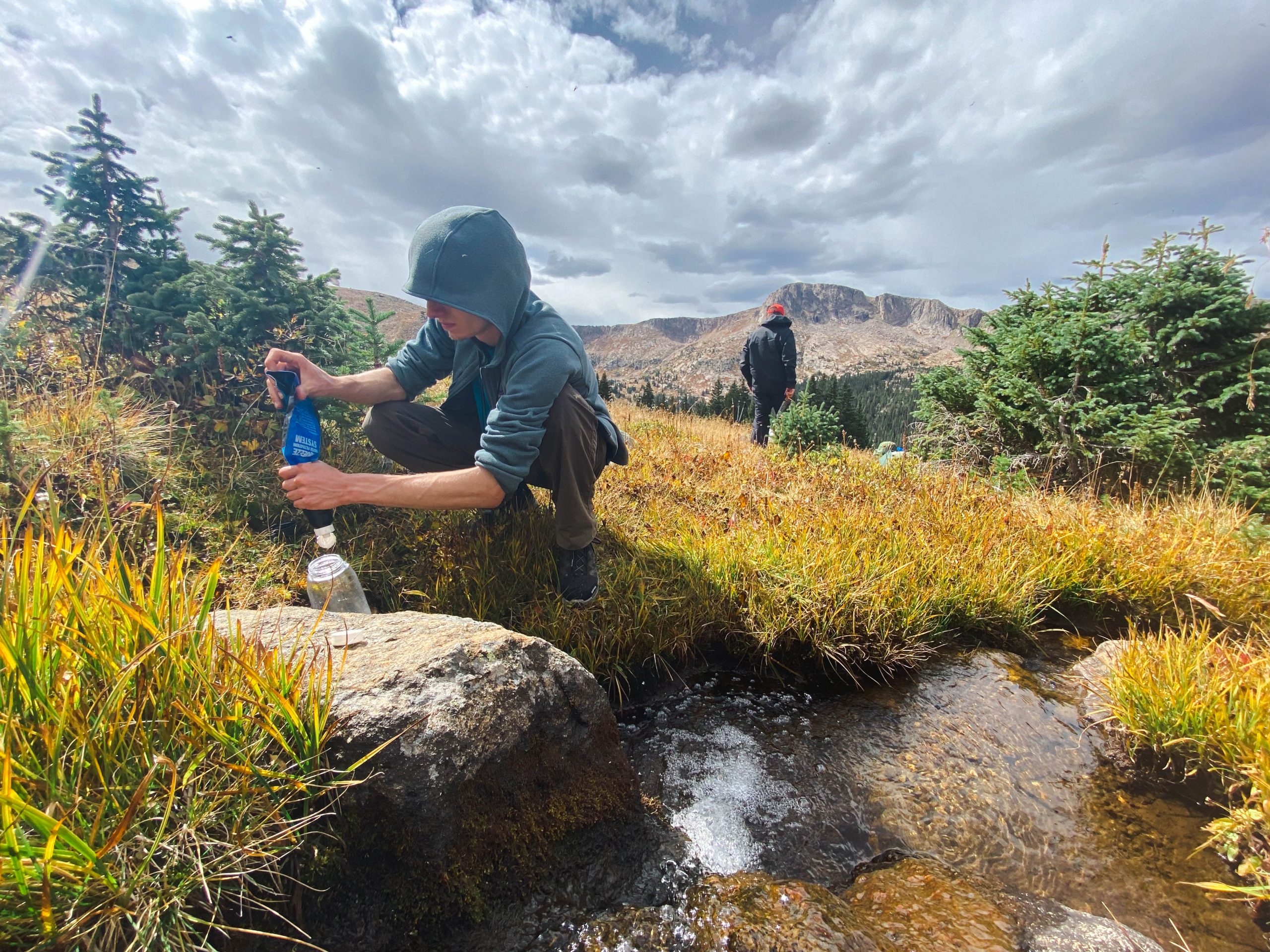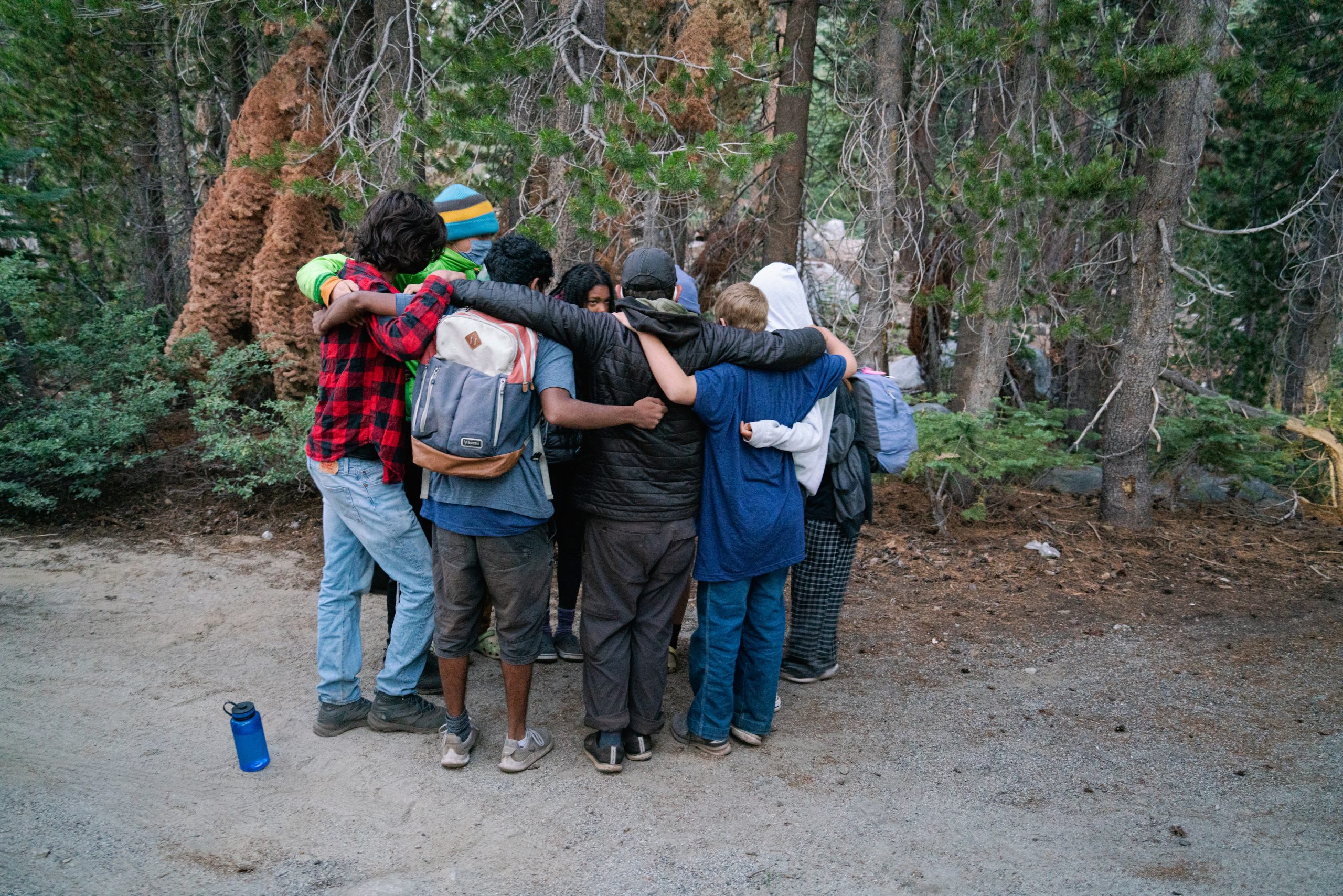There is an undeniable connection between the way you take care of yourself and how you show up for your community.
“Self-care” is a term we are hearing more often these days. It’s been a tough couple of years for most of us, and it has led to a reimagining of what we need to feel and perform at our best. Often this comes back to how we take care of ourselves, and that conversation is inspiring new practices.
Defining Self-Care
What does it mean to take care of yourself? What does it look like to take care of others? On a basic level, self-care is anything you do to meet your needs. Group care is the service and empathetic actions you and your group take to care for each other. It’s hard to have community care without self-care. And if you do, it’s probably unsustainable. Filling our cup by meeting our own needs first is the baseline for enabling future community care.

Photo by Dalton Johnson.
Community Care
Often we must show up for those around us in our lives, and an Outward Bound expedition is the perfect training ground for those moments. As the challenges of course come up, crewmates have opportunities to care for each other. As an Instructor, one of my goals for a course is to instill an ethic of service into my students. Service comes in many forms. It could be trail work or trash cleanup, or it might look like having a supportive crew culture. Ultimately, transference from course to life in this realm can result in students returning home better able to serve those around them.
You Can’t Pour From an Empty Cup
When our basic human needs, such as a balance between rest and activity, go unmet, we sometimes attempt to meet them in unhealthy or unsustainable ways. This can impact those around us in a negative way.
For example, imagine a person who has a large need for fun in their life. They’ve been at work or school all day, and that need is currently unmet. At their friend’s house that night, they choose to make fun of that one friend everyone always makes fun of because it’s easy, and because it’s fun.

Another example in the context of an Outward Bound course is a crew that has been hiking all day. The student designated as “Leader of the Day” has been neglecting their hydration because they are busy managing the group. Ultimately, the “Leader of the Day” develops a painful headache due to dehydration, resulting in a weakened ability to guide their crew. In both examples, a lack of self-care results in an individual’s capability to support the people around them.
It all starts within the self. If we can pursue our self-growth with the background knowledge of its purpose, then we can make personal decisions that will contribute to a better world.
To Serve, To Strive, and Not To Yield
As much as an Outward Bound course is a training ground for community care, it is a safe place to grow in self-reliance. And not just self-reliance—self-awareness, self-compassion, self-efficacy. If one chooses to accept the invitation, we grow ourselves to better serve others. The more able we are to take care of ourselves, the better able we are to serve those around us.

Photo by Dalton Johnson.
I struggled when I first came to work for Outward Bound, knowing that my emotional intelligence and resilience capacity was skyrocketing, but was this a selfish career pursuit? Was I engaging in the outdoors in a way that served only me so deeply? What was the point of a career to that end? Though what I’ve learned is that any, and all, personal growth puts me in a better position to serve students, my co-instructors, and my community moving forward. And many of our students leave their course with the same realization: that self-care is community care.
About the Author
Addie Hurwitz is a field Instructor for the North Carolina Outward Bound School, primarily out of Table Rock base camp. Addie has a degree in Recreation, Park, and Tourism Management from Penn State University. She loves working in experiential education and takes similar joy from studying its academic side. When not on a course, Addie is likely skiing or traveling.